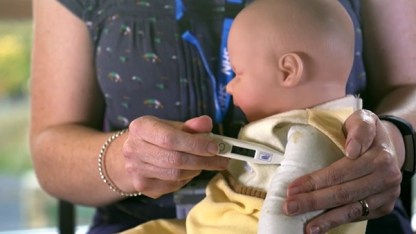Help for you and your family to stay well this winter



Downloads
Staff working hard under pressure
As part of the review across the West Yorkshire integrated care system, the CQC inspected 999 and NHS 111 services run by the Yorkshire Ambulance Service NHS Trust, as well as urgent and emergency care run by The Mid Yorkshire Hospitals NHS Trust and Bradford Teaching Hospitals NHS Foundation Trust.
The CQC also inspected mental health services run by South West Yorkshire Partnership NHS Foundation Trust, local GP surgeries, urgent care out-of-hours services and adult social care providers alongside a full comprehensive inspection at The Mid Yorkshire Hospitals NHS Trust, full findings for which will be published in due course.
Ann Ford, CQC director of operations network, said:
“During the urgent and emergency care inspections across West Yorkshire, staff were working hard under sustained pressure. It was reassuring that leaders were working together to support their workforce and to identify opportunities where improvements could be made, however people continued to experience delays in accessing care and treatment.
“The NHS 111 service was experiencing significant staffing challenges and were in the process of recruiting new staff. Also, this service had experienced an increase in demand, particularly from people trying to access dental treatment, although a system was in place to manage the need for dental advice and assessment.
“Across West Yorkshire, it’s important that service leaders continue to work together to improve patient pathways across urgent and emergency care, to alleviate pressure on other services and ensure people receive the best possible care.”
Across the system, inspectors found:
- Some staff and patients reported difficulties with providing and accessing telephone appointments in GP practices. Some of these issues were due to ineffective telephone systems which were being looked at to try and resolve the issues.
- The ambulance service had an improvement programme in place focused on performance and staffing. While there was some improvement in ambulance response times and handover delays, performance remained below target.
- Mental health services in Wakefield were delivering person-centred care and responded to urgent needs in a timely way.
- Staff working in some social care services reported significant challenges in relation to hospital discharge processes, this included a lack of information to support their transfer of care and we were told of examples when this resulted in people having to return to hospital. Local stakeholders had a good understanding of this problem and were looking to improve pathways and discharge planning.
- Staffing and capacity issues in both care homes and domiciliary social care services have sometimes impacted on timely and safe discharge from hospital.
- There were inconsistencies with triage processes in primary care which could result in people being inappropriately signposted to urgent and emergency care services. However, a number of staff working in social care services reported good engagement with local GPs.

